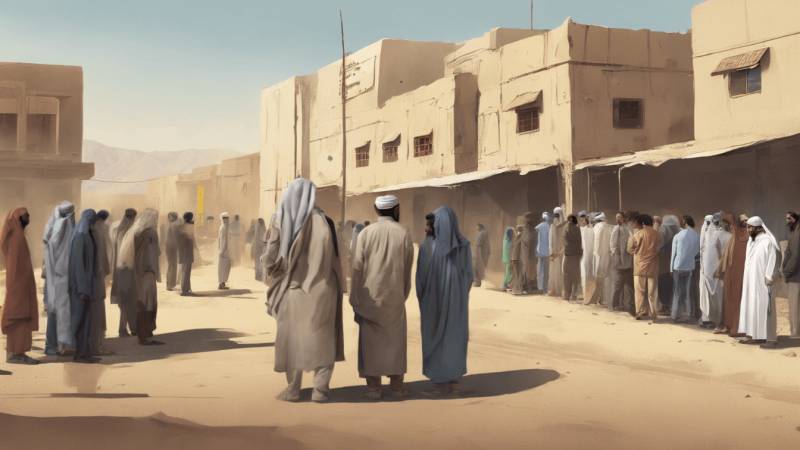
Pakistan's largest province by size and the smallest by population, Balochistan, is often considered to suffer from an acute governance challenge. With its people extremely impoverished and the government stretched to deliver on services and development, the question that has to be asked is: can 'good governance' come to the province, and can proposed reforms be enough to break the cycle of dysfunction which has gripped Balochistan for decades?
The Balochistan Civil Service (Executive Branch) Officers Welfare Association recently organised a one-day seminar on "Good Governance, Civil Service Reforms and Public Service Delivery." Balochistan Chief Minister Mir Sarfraz Khan Bugti was invited as the chief guest, while Senator Mushahid Hussain Syed, eminent economist Dr Kaiser Bengali and Balochistan National Party leader Sana Baloch were the key speakers among others. I was also invited to speak on the subject and I covered the theoretical framework of good governance, its correlation with service delivery and provided recommendations for the improvement of service delivery in Pakistan, and particularly in Balochistan.
I opened with a discussion on "good governance". It can be defined as economy, efficiency and effectiveness, wherein the market efficiently allocates resources while the state equitably distributes the gains from economic growth. To achieve sustainable outcomes, strategic interventions in leadership and service delivery are required. Poor leadership and outdated service delivery policies and rules result in bad governance.
In Pakistan, the rule of law and mechanisms for accountability are extremely weak and manipulated in favour of the powerful elite, resulting in poor service delivery and bad governance
A state has access to three main institutions for service delivery: the government, the market and the civil society. The government is responsible for regulating the market and the civil society to ensure effective, timely and equitable service provision to the people. Moreover, it is the job of the government to prevent market failures and develop a proper regulatory framework to ensure efficiency. The government must provide an enabling environment for better service delivery to the masses to serve the common good, promote equality and justice. A vibrant and mobilised civil society provides feedback to the government regarding the effectiveness of the regulatory framework. A good public service delivery mechanism ensures good governance, while good governance promotes good service delivery; thus the cycle continues. It is called service delivery governance, which means managing service delivery through defined processes, roles and responsibilities.
Additionally, good governance and service delivery require political order. Francis Fukuyama explains in his book 'The Origins of Political Order: From Prehuman Times to the French Revolution' (2011), and later in his subsequent book 'Political Order and Political Decay' (2014) that political order is reflected in three institutions: the state, the rule of law and mechanisms of accountability. These factors contribute to a stable political order in the state, thus making the state efficient for better service provision. The government should be capable enough to enforce the writ of the state. The second component, the rule of law, is weak in Pakistan. It can be argued that it is rather rule by law, which results in bad governance. Fukuyama refers to accountability in terms of "free and fair" elections, which ensures that the government is answerable to the people. If this factor is not in place, there will be no true democracy. The principle of accountability in institutions means fair and just dealings and serving the people as per the law of the state. In Pakistan, the rule of law and mechanisms for accountability are extremely weak and manipulated in favour of the powerful elite, resulting in poor service delivery and bad governance.
Evidently, there must be a rule of law to ensure justice in Pakistan. Then comes the framework of "fair and free elections", which ensures the elected government enjoys the public's mandate and is answerable to them for performance, which will have a trickle-down effect in all government and administrative units as far as merit is concerned. The local government system must also be strengthened by amending the Constitution of Pakistan as it is the closest level of government to the people and a foundation of a democratic state. Moreover, for better service delivery, merit-based appointments must be made in civil service, while promotions and transfers must be made as per a set criterion with performance-based evaluations.
Undue political interference in civil bureaucracy for illicit benefits which compromises service delivery and governance, must be mitigated. Unless political order and across-the-board accountability exist, any administrative or civil services reform will be futile, and the vicious cycle of inefficiency will continue.

